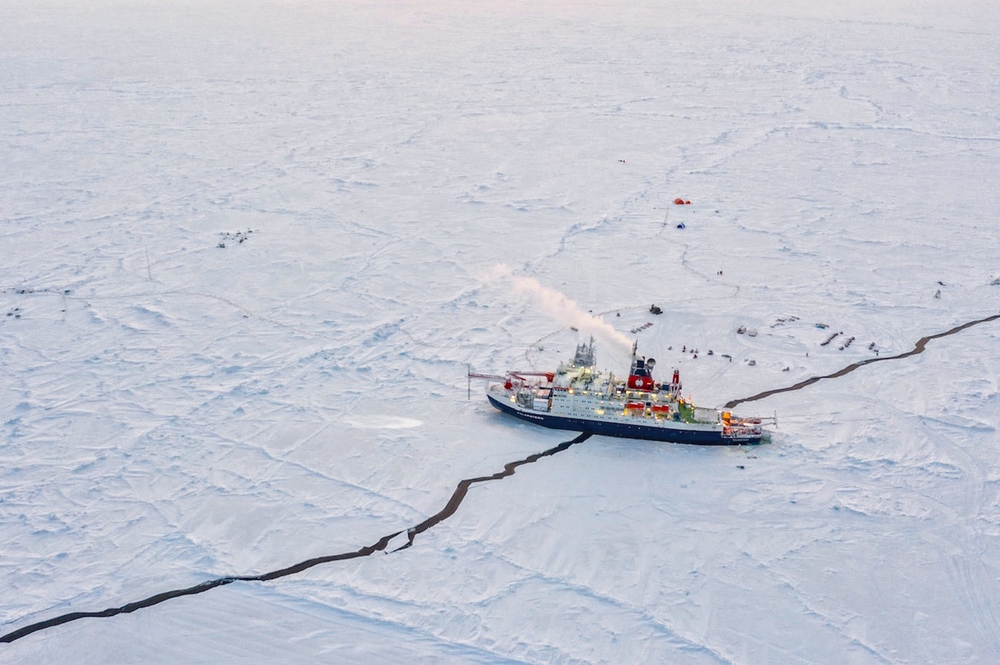China and Russia's Arctic Corridor: A Game Changer for Global Trade
Published
- 3 min read

The intensifying geopolitical instability in the Middle East, particularly the Gaza conflict and its impact on critical waterways like the Suez Canal, has catalyzed a shift in global trade strategies. China and Russia, recognizing the vulnerabilities of traditional maritime routes, are accelerating efforts to establish the Northern Navigation Corridor in the Arctic. This emerging route could redefine global trade dynamics, offering a reliable and efficient alternative to the Suez Canal.
The Rising Instability in the Middle East
The Suez Canal has long been a linchpin in global trade, facilitating the passage of 12% of the world’s goods. However, disruptions like the 2021 blockage caused by the container ship Ever Given, and the potential impact of the ongoing Middle Eastern unrest, highlight the fragility of this vital artery. Increased Houthi strikes and the ramifications of the Gaza war further underscore the region’s instability, making the development of alternative routes an urgent priority for global powers.
The Northern Navigation Corridor: A Game-Changer
China and Russia’s Northern Navigation Corridor leverages the Arctic’s geographical advantages to connect the Atlantic and Pacific Oceans. This route offers several strategic benefits:
- Shorter Travel Times: The Arctic route could halve the transit time for goods moving between Asia and Europe, reducing costs and increasing efficiency.
- Reduced Risk: Unlike the Middle East, the Arctic region is less susceptible to political instability, ensuring uninterrupted trade flows.
- Strategic Depth: Control over this route strengthens Russia’s and China’s geopolitical leverage, challenging Western dominance in global trade.
Russia, equipped with the world’s largest fleet of icebreakers, is leading the charge in making the Arctic navigable year-round. China, as a key partner, is contributing through investments, scientific research, and port development.
NATO’s Strategic Response
The growing presence of China and Russia in the Arctic has not gone unnoticed by NATO. In November 2024, NATO member states initiated the “North Link” satellite network to monitor Arctic activities, citing concerns over national and military security. This marks a clear attempt to counterbalance the Arctic ambitions of China and Russia, which NATO perceives as a threat to its maritime dominance.
At the recent Halifax Security Forum, Canadian officials highlighted Beijing’s dual approach in the Arctic—economic investments and alleged intelligence gathering under the guise of scientific research. NATO’s plans to militarize the region with air operations centers and satellite surveillance further reflect the high stakes involved.
Russia and China’s Arctic Ambitions
Russia is rapidly expanding its Arctic infrastructure, boasting 17 ports along the region and deploying nuclear-powered icebreakers like the Leningrad. These developments align with Moscow’s vision of using the Arctic for exporting oil and gas, while also making it a cornerstone of its global trade strategy.
China, on the other hand, views the Arctic as an extension of its Belt and Road Initiative (BRI). By securing an alternative to the Suez Canal, Beijing aims to mitigate risks associated with Middle Eastern conflicts and ensure the stability of its trade routes.
The Broader Implications for Global Trade
The development of the Northern Navigation Corridor presents both opportunities and challenges for the global economy:
- Economic Benefits: Shorter trade routes and reduced transit costs could lower global shipping expenses, benefiting exporters and importers alike.
- Geopolitical Tensions: The Arctic’s increasing militarization risks heightening tensions between NATO and the Sino-Russian alliance.
- Environmental Concerns: Increased activity in the Arctic raises concerns about ecological impact and the long-term sustainability of this fragile region.
Conclusion: A Balancing Act for the Future
The Arctic is rapidly emerging as a critical arena in the global trade and geopolitical landscape. For China and Russia, the Northern Navigation Corridor represents a strategic hedge against the vulnerabilities of traditional routes like the Suez Canal. For NATO, it is a challenge to its maritime and military dominance.
As the Middle East remains volatile, the bet on Arctic stability could reshape the future of global trade. The development of this corridor underscores the shifting power dynamics in international relations and the relentless pursuit of strategic advantage in an increasingly interconnected world.
